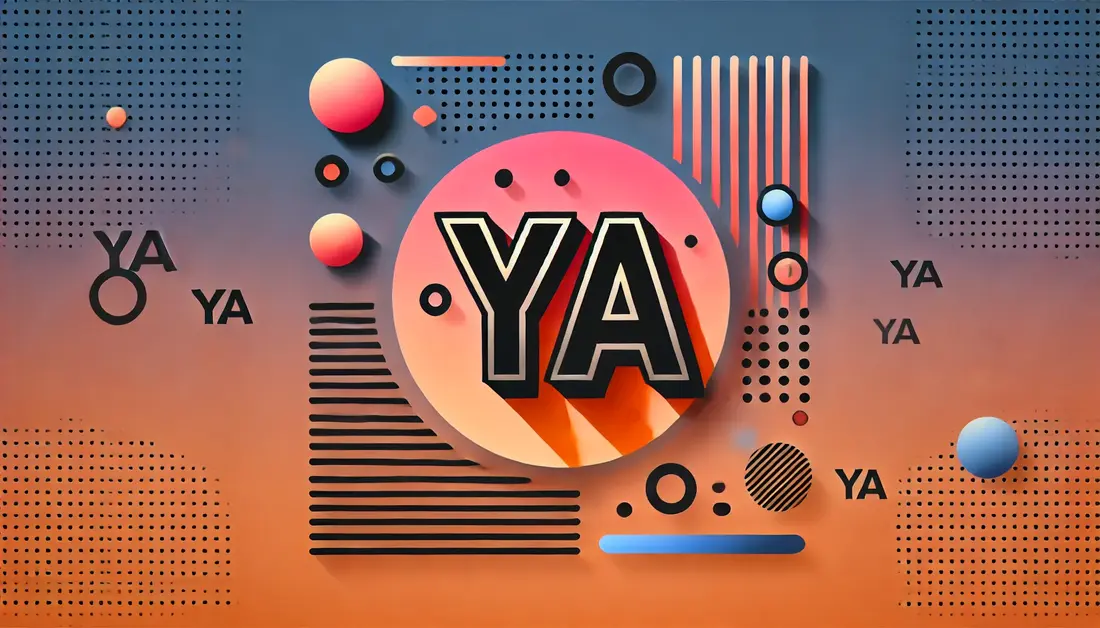Bosque de Palabras
Bosque de Palabras is a text adventure survival game designed to help you learn Spanish vocabulary and grammar while having fun!
In Bosque de Palabras, you're camping️ in the middle of a dark forest, with only a few pieces of food left and a campfire keeping you warm. Every choice you make is important for your survival.
Perfect for: Novice and Intermediate level Spanish learners.
How to Use "Ya" in Spanish Like a Native
Gordon Feliz • Updated Jan 23rd, 2025
Bosque de Palabras is a free text adventure survival game designed to help you learn Spanish vocabulary and grammar while having fun!


Apprendre en français

Aprender em Português
Understanding the Word "Ya" in Spanish: A Complete Guide
The word ya is one of the most frequently used and versatile words in the Spanish language. If you want your Spanish conversations to flow naturally, it’s crucial to understand how to use ya correctly.
In this practical guide, you’ll uncover the various meanings of ya, when to use it in Spanish, and how to integrate it effortlessly into your everyday vocabulary.
What Does "Ya" Mean in Spanish?
Ya is an incredibly expressive word in Spanish with a range of meanings that can change based on context.
Most often, ya translates to “already” in English, but it behaves differently in Spanish. It can also mean “yet,” “anymore,” or even act as a filler word to add emotional nuance to a sentence.
The Three Functions of "Ya" in Spanish
Adverb
As an adverb, ya is used to modify or describe an action, adding more detail to a verb.
Locution
In this role, ya forms part of expressions or phrases whose meaning can shift depending on context. These phrases often convey complete ideas or emotions.
Colloquialism
Ya is widely used in casual, everyday speech. It can even function as a filler word, adding emphasis or emotion to a sentence without changing its meaning.
How to Use "Ya" in Spanish
At first glance, this small word might feel a bit daunting, but with practice, you’ll find yourself using it naturally and effortlessly. By the end of this guide, you might even consider ya one of your favorite Spanish words!
Let’s explore its different meanings and discover how to use ya effectively in various contexts.
1. Ya Meaning “Already” or “Yet”
One of the most common uses of ya is to indicate that something has already happened or to ask if something has occurred yet.
It’s important not to confuse ya with todavía, which means “still” or “not yet,” as these words can sometimes overlap in meaning.
Examples:
Isabel y Juan ya se casaron el mes pasado.
(Isabel and Juan already got married last month.)
No tienes que comprar el libro; ya lo compré yo.
(You don’t have to buy the book—I already bought it.)
¿Ya no hiciste tu tarea?
(You didn’t do your homework yet?)
¿Ya compraste el pastel de cumpleaños?
(Did you already buy the birthday cake?)

2. Meaning “Now,” “Later,” or “Right Now”
When ya is used in this context, it conveys urgency or impatience and is often tied to time-sensitive actions. Depending on the tone, it can also express surprise in questions.
Examples:
Nos vamos ya.
(We’re leaving now.)
Ya nos tenemos que ir.
(We have to go right now.)
Ya hablaremos cuando llegue.
(We’ll talk once I arrive.)
¿Ya están listos?
(Are they ready?)
Te estaba esperando, pero ya voy tarde.
(I was waiting for you, but now I’m late.)
3. To Show Frustration
This informal use of ya adds a tone of frustration, exasperation, or disappointment to your sentences, making it clear that you’ve had enough or reached a limit.
Examples:
¡Ya estuvo!
(That’s enough!)
¡Ya está! No hay otra opción.
(That’s it! There’s no other option.)
¡Ya fue!
(It’s over!)
Ya pasó, no puedo hacer nada.
(It’s done; there’s nothing I can do.)
4. To Add Emphasis
As a filler word, ya can emphasize a point or add intensity to a sentence. Often, these expressions are tricky to translate directly into English but are common in casual conversation.
Examples:
¡Ya te escuché la primera vez!
(I heard you the first time!)
Ya quisiera ser millonaria.
(I wish I were a millionaire.)
Ya lo sé, pero no puedo sacarte de mi mente.
(I know, but I can’t get you out of my mind.)
Pues ya sabes qué va a pasar.
(Well, you know what’s going to happen.)
5. Meaning “Not Anymore,” “Any Longer,” or “No Longer”
In Spanish, ya can replace phrases like “not anymore,” “any longer,” or “no longer.” Simply pair ya with no to indicate that something has stopped or is no longer happening.
Examples:
Ya no como chocolate; me cae pesado.
(I don’t eat chocolate anymore; it doesn’t sit well with me.)
¿Ya no estás saliendo con Juan?
(You’re no longer dating Juan?)
Michelle ya no se encuentra en la oficina.
(Michelle is no longer in the office.)
Ya no sé si me cae bien Luis; es muy chismoso.
(I don’t know if I like Luis anymore; he’s so gossipy.)
6. To Provide Reassurance
Ya can also be used to comfort someone, show understanding, or offer hope in a situation. It’s an excellent way to calm or reassure others.
Examples:
Ya verás que todo va a salir bien.
(You’ll see that everything will turn out fine.)
Ya entiendo de qué estabas hablando ayer.
(Now I understand what you were talking about yesterday.)
Ya vas a ver que es un lugar seguro.
(You’ll see it’s a safe place.)
Ya fui a mi casa; ya no te preocupes.
(I already went home—don’t worry about it anymore.)
7. To Express Agreement—or Disbelief
As a colloquialism, ya can be incredibly versatile, even conveying sarcasm or disbelief. It packs a lot of meaning into just one word or short phrase.
Examples:
Ya, y yo soy Superman.
(Yeah, right—and I’m Superman.)
Ya, suena fácil pero no lo es.
(Yeah, it sounds easy, but it isn’t.)
Ya te caché.
(I caught you.)
¡Ya, ya!
(Yeah, sure!)
8. To Draw Attention to Something
In this context, ya translates to “since” and is often paired with que to introduce a reason or explanation. It helps highlight a specific situation or condition.
Examples:
Ya que no ha venido Luis, podemos irnos sin él.
(Since Luis isn’t here yet, we can go without him.)
Ya que te gustó, quédatelo.
(Since you liked it, keep it.)
Ya que sabes mucho, ¿me puedes explicar?
(Since you know so much, can you explain it to me?)
Ya que vas para afuera, ¿me llevas a casa?
(Since you’re going out, can you take me home?)
9. Meaning “Almost”
When ya is used in this way, it expresses that something is close to happening or being completed. As an adverbial locution, it modifies the action or verb in the sentence.
Examples:
Ya mero nos veremos.
(We’ll almost see each other.)
Ya casi salimos de mi casa.
(We’re almost out of my house.)
Voy manejando rápidamente; ya casi llego.
(I’m driving fast—I’m almost there.)
Ya casi está la comida.
(The food’s almost ready.)
10. To Celebrate an Achievement
Use ya when you’re highlighting a wish fulfilled, a goal achieved, or a completed action. It conveys excitement or satisfaction.
Examples:
¡Ya conseguí el trabajo!
(I already got the job!)
¿Sabías que ya me gradué?
(Did you know I already graduated?)
Ya sé; ya me acordé.
(I know—I just remembered.)
¡Ya sé qué hacer!
(I know what to do!)
11. To Connect Related Ideas
In this context, ya acts as a conjunction to link two related facts or ideas, often emphasizing cause-and-effect relationships. This use commonly involves longer sentences with a que clause.
Examples:
La blusa estaba en oferta, así que ya la compré.
(The blouse was on sale, so I bought it.)
Quisiera más información ya que no me queda claro.
(I’d like more information since it’s not clear to me.)
Ayer ya no pude ir ya que me quedé sin carro.
(I couldn’t attend yesterday since I didn’t have a car.)
Mi hijo ya creció; ya dice sus primeras palabras.
(My son has grown up; he’s already saying his first words.)
Key Takeaways for Using Ya in Spanish
Understanding ya relies heavily on context and verb tense. In many cases, ya emphasizes a transition or change of state in an action, whether in the past, present, or future.
- Use ya no to indicate that something is no longer happening.
- Use ya to highlight a change from not happening to happening.
- Don’t focus on translating ya literally into English. Instead, try to grasp the bigger picture and the context in which it’s used.
By doing this, you’ll develop a natural understanding of how ya functions in Spanish conversations.
Language Learning Exercises To Practice Using "Ya"
1. Meaning “Already” or “Yet”
Ya terminé mi tarea.
(I already finished my homework.)
¿Ya has hablado con tu jefe?
(Have you spoken to your boss yet?)
Ya compré los boletos para el concierto.
(I already bought the tickets for the concert.)
¿Ya está lista la cena?
(Is dinner ready yet?)
Ya hemos visitado ese museo antes.
(We’ve already visited that museum before.)
2. Meaning “Now,” “Later,” or “Right Now”
Ya nos vamos; está muy tarde.
(We’re leaving now; it’s very late.)
Ya hablaremos después de la reunión.
(We’ll talk later after the meeting.)
Ya quiero que sea el fin de semana.
(I already want it to be the weekend.)
¿Ya puedes venir a ayudarme?
(Can you come help me right now?)
Ya está arreglado el problema.
(The issue is already fixed now.)
3. To Show Frustration
¡Ya basta! Estoy cansado de escuchar lo mismo.
(Enough already! I’m tired of hearing the same thing.)
¡Ya estuvo! No voy a discutir más.
(That’s enough! I’m not arguing anymore.)
¡Ya fue! No hay nada más que podamos hacer.
(It’s over! There’s nothing else we can do.)
Ya pasó todo, así que déjalo ir.
(It’s all over now, so let it go.)
¡Ya, por favor! Necesito un momento de silencio.
(Please, enough! I need a moment of silence.)
4. To Add Emphasis
¡Ya te dije que no quiero ir!
(I already told you I don’t want to go!)
Ya sabía que esto iba a pasar.
(I already knew this was going to happen.)
¡Ya quiero ver esa película!
(I can’t wait to see that movie!)
Pues ya sabes qué hacer en este caso.
(Well, you already know what to do in this case.)
Ya lo sé, pero no puedo hacer nada al respecto.
(I know, but I can’t do anything about it.)
5. Meaning “Not Anymore,” “Any Longer,” or “No Longer”
Ya no como carne; soy vegetariano.
(I don’t eat meat anymore; I’m vegetarian.)
¿Ya no trabajas en esa empresa?
(You don’t work at that company anymore?)
Ya no vivo en esa ciudad; me mudé.
(I no longer live in that city; I moved.)
Ya no tenemos tiempo para resolverlo.
(We don’t have time to fix it anymore.)
Ya no necesito tu ayuda, gracias.
(I no longer need your help, thanks.)
6. To Provide Reassurance
Ya verás que todo saldrá bien.
(You’ll see everything will work out.)
Ya sé que estás haciendo tu mejor esfuerzo.
(I know you’re doing your best.)
Ya vamos a llegar, no te preocupes.
(We’ll get there soon, don’t worry.)
Ya entendí lo que intentabas decirme.
(I finally understood what you were trying to tell me.)
Ya todo está bajo control, confía en mí.
(Everything is under control now, trust me.)
7. To Express Agreement—or Disbelief
Ya, como si fuera tan fácil.
(Yeah, as if it were that easy.)
Ya, y yo soy astronauta.
(Yeah, right—and I’m an astronaut.)
Ya te caché, no te hagas.
(I caught you, don’t pretend.)
¡Ya, ya! No me expliques más.
(Okay, okay! Don’t explain anymore.)
Ya, suena sencillo pero no lo es.
(Yeah, it sounds simple, but it isn’t.)
8. To Draw Attention to Something (Using "Ya" as "Since")
Ya que estás aquí, ayúdame con esto.
(Since you’re here, help me with this.)
Ya que no vino, podemos empezar la reunión.
(Since he didn’t come, we can start the meeting.)
Ya que tienes tiempo, ¿por qué no me llamas?
(Since you have time, why don’t you call me?)
Ya que terminaste, ¿puedes revisar mi trabajo?
(Since you’re finished, can you review my work?)
Ya que te gusta tanto, deberías comprarlo.
(Since you like it so much, you should buy it.)
9. Meaning “Almost”
Ya casi llegamos; ten paciencia.
(We’re almost there; be patient.)
Ya mero está lista la comida.
(The food is almost ready.)
Ya casi termino mi tarea.
(I’m almost done with my homework.)
Ya casi alcanzo el autobús.
(I’m almost catching the bus.)
Ya casi es hora de dormir.
(It’s almost time to sleep.)
10. To Highlight an Accomplishment
¡Ya terminé el proyecto!
(I already finished the project!)
¿Sabías que ya aprobé el examen?
(Did you know I already passed the exam?)
Ya ganamos el partido; podemos relajarnos.
(We already won the game; we can relax.)
¡Ya me ascendieron en el trabajo!
(I already got promoted at work!)
Ya sé cómo resolver este problema.
(I already know how to solve this problem.)
Additional Resources To Learn More
Here are three articles that complement the topic of using ya in Spanish, helping you dive deeper into important aspects of the language:
How to Use Direct and Indirect Object Pronouns in Spanish
This article explains the proper use of direct and indirect object pronouns, which are often essential for building natural, fluent sentences in Spanish. It's a great resource to pair with understanding ya since both involve nuanced grammar usage.
Navigating the Nuances of 'Qué' and 'Cuál' in Spanish
If you're mastering the subtle meanings of words like ya, this guide to the differences between qué and cuál will help you navigate other common Spanish words that depend on context for their meaning.
Rare Spanish Tenses and When to Use Them: A Detailed Guide
Once you're comfortable with ya and its uses across tenses, this article provides an in-depth look at rare Spanish tenses, helping you expand your knowledge of less commonly used but important grammatical forms.
